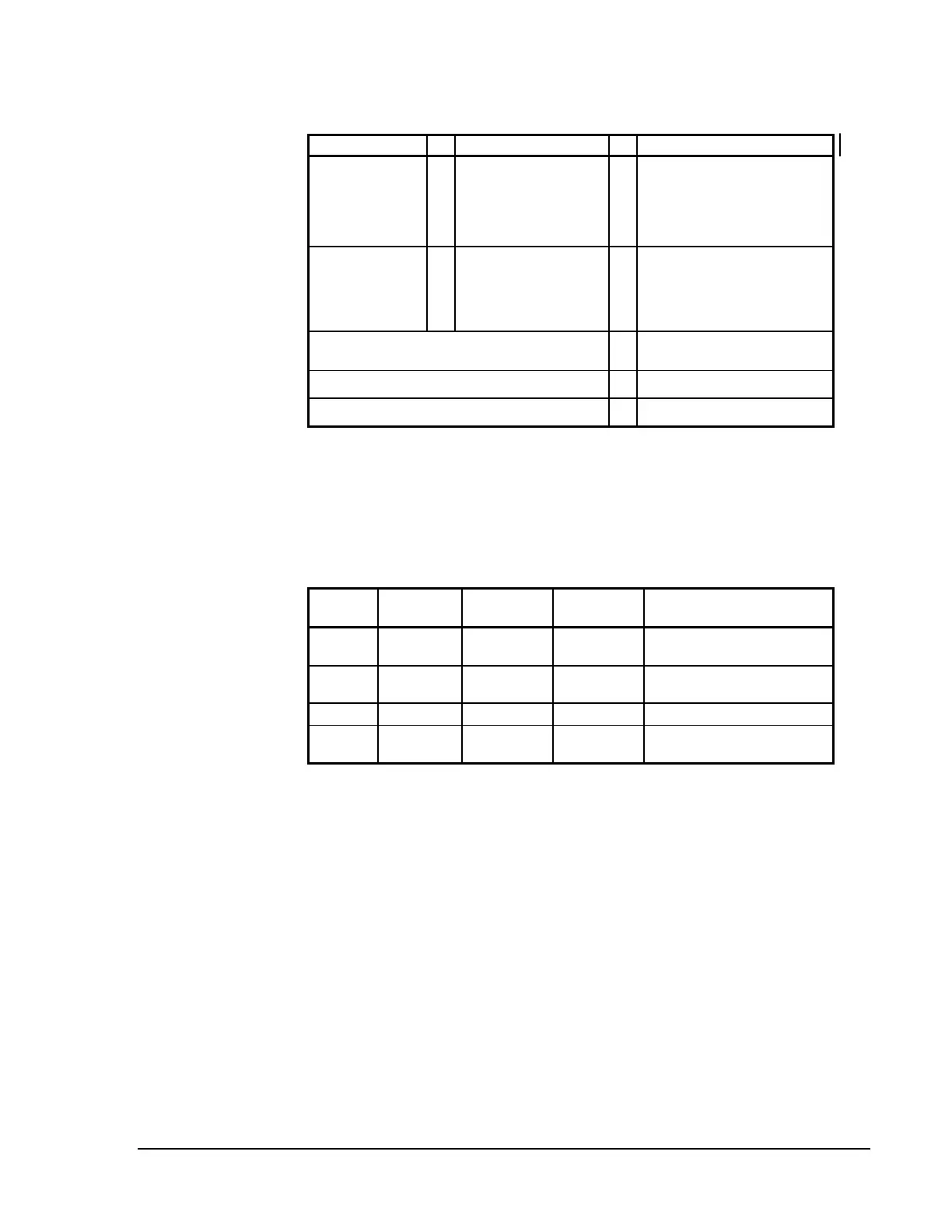Hardware Installation—Installing the IFC-1010/2020
49
Table 7: Secondary Power Standby and Fire Alarm Load
Type of Load X Required Time = Result
Secondary
Non-Fire Alarm
Load (from 3rd
column
Table 5)
X
Required Secondary
Non-Fire Alarm
Standby Time
(24 or 60 hours)
=
Non-Fire Alarm Secondary
Standby Ampere Hours
Secondary Fire
Alarm Load
(from Table 6)
X
Required Fire Alarm
Time (for 5 minutes,
enter 0.084)
(for 15 minutes,
enter 0.25)
=
Secondary Fire Alarm
Ampere Hour Requirement
Sum Column for Total Secondary Ampere
Hours (AH) Calculated
=
Multiply by the Derating Factor x 1.2 =
Total Secondary Ampere Hours Required =
Table 8 sums the non-fire alarm and alarm loads to arrive at the battery
size in Ampere-Hours (AH), required to support the IFC-1010/2020.
The MPS-24A or MPS-24AE can charge batteries up to 60 AH in size.
Select batteries that meet or exceed the total AH calculated:
Table 8: Battery Size Requirements
Battery
Size
Voltage
Rating
Number
Required
Model
Number
Cabinet Size
9.5 AH
6 volts Four PS-695 CAB-A3, B3, C3, D3
(IFC-1010 only)
12 AH
12 volts Two PS-12120 CAB-A3, B3, C3, D3
(IFC-1010 only)
25 AH
12 volts Two PS-12250 CAB-A3, B3, C3, D3
60 AH
12 volts Two PS-12600 BB-55 Cabinet (Batteries
only)
Note: NFPA 72 Local and Proprietary Fire Alarm Systems require
24 hours of secondary non-fire alarm power followed by 5 minutes
in alarm. NFPA 72 Auxiliary and Remote Station Fire Alarm
Systems require 60 hours of secondary non-fire alarm power
followed by 5 minutes in alarm. NFPA 72 Voice Evacuation
Systems require 15 minutes of alarm time.
